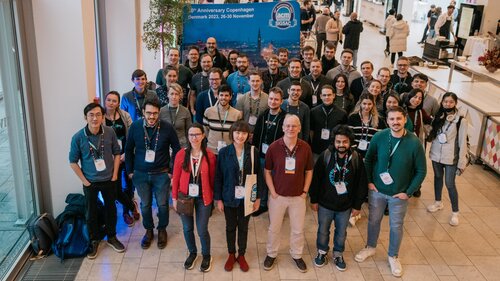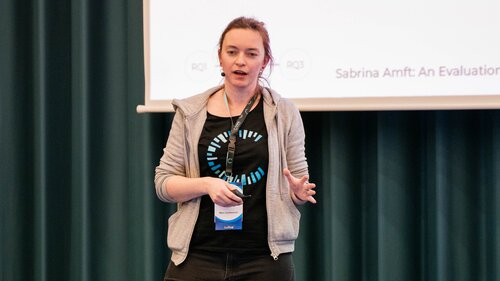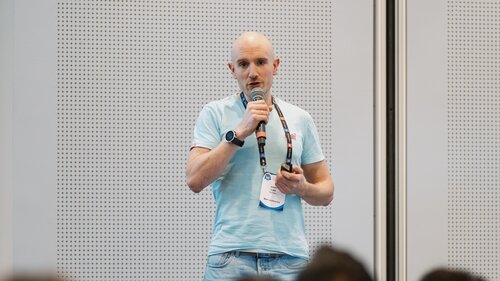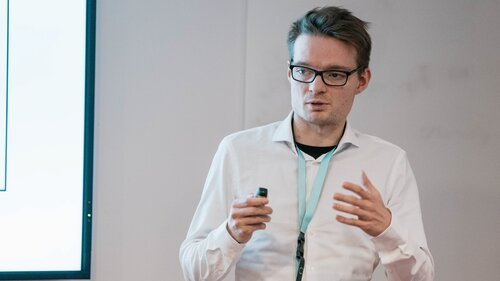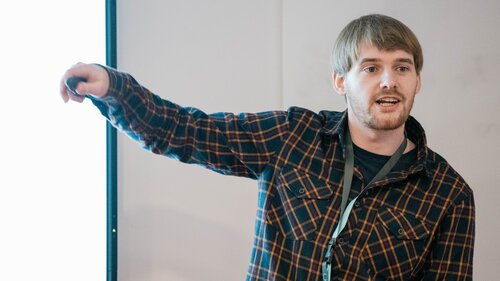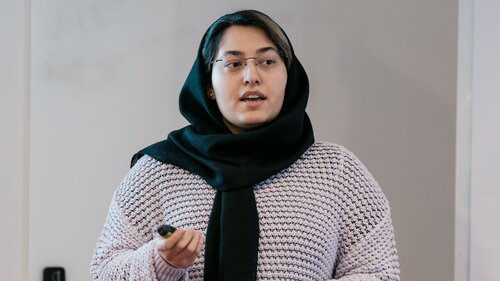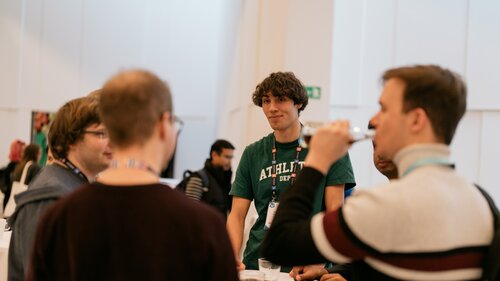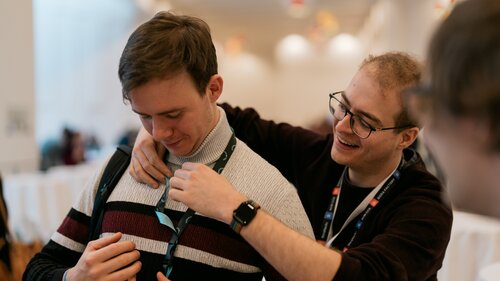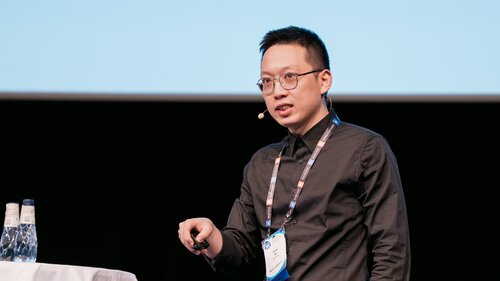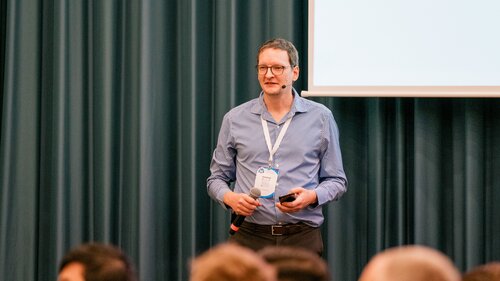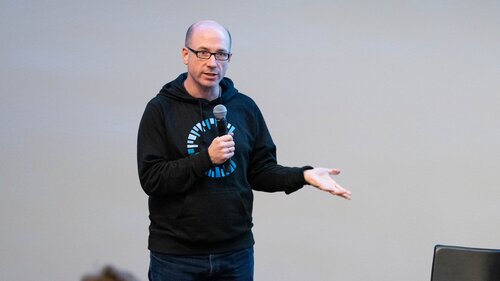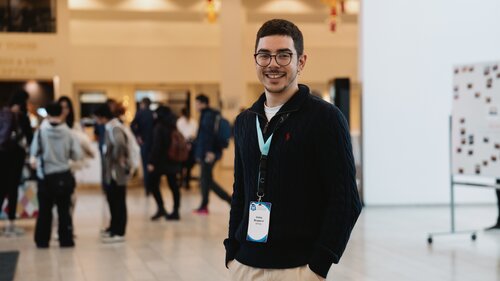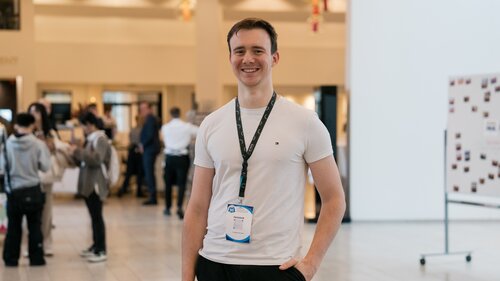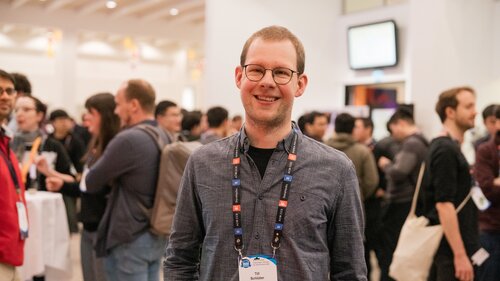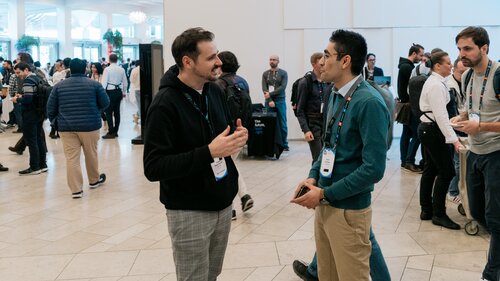Bye Bye Copenhagen!
Bye Bye Copenhagen!
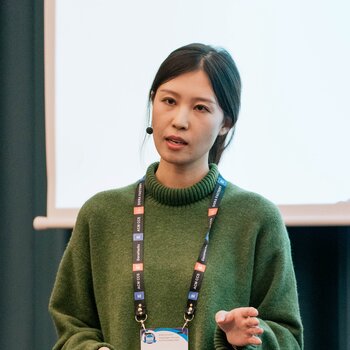
Wednesday, which is also the final day of the main conference, starts much colder than the previous days. I'm glad that I got myself a beanie and heavy gloves the day before, which turn out to be an absolute must-have for the rest of my time in Copenhagen. There are several paper presentations by CISPA researchers scheduled for the day. Among others, Florian is presenting his work today, in which he has investigated how web archives can be used to perform reproducible web security measurements. From there, we rush to the next room to Jeremy Rack, who has examined JavaScript bundling on the web and its impact on security. Shortly after, Sabrina Amft presents a paper on multi-factor authentication and then it's on to Yiting Qu, who has looked at text-to-image generators that can be used to create critical imagery and hate memes. Lots of wildly different topics and the day is far from over.
Outside, I bump into CISPA-Faculty Sven Bugiel. We get talking and somehow stumble onto the topic of paper reviews. It`s another much discussed topic at these conferences how the review process can grow healthily with the growing number of researchers. This is how the selection of reviewers currently works: Bids are placed on papers. In my mind's eye, I can see Sven and Ben betting all their chips on a paper in the casino. But I quickly realize that it's not quite that exciting after all. "We indicate on a scale from minus 20 to plus 20 how much we would like to review a paper. Of course, it doesn't mainly depend on how interesting I find a topic - maybe that too - but above all on how well I know the field," says Sven and continues: "In the end, there are always five reviewers per paper. So there are usually people among them who are not top experts in the field. They tend to hold back with strong evaluations."
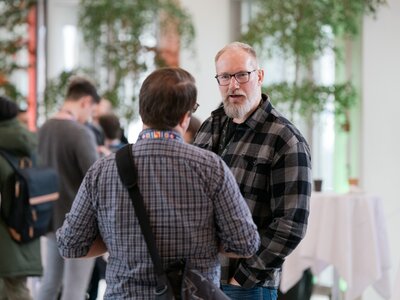
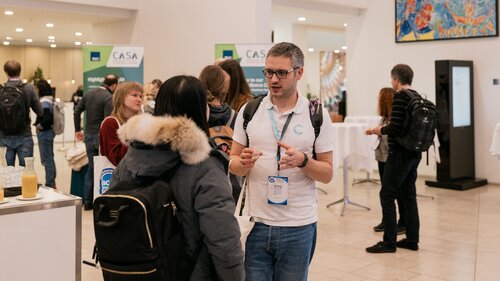
Ben Stock joins me and shows me how the selection software works, which ultimately turns all bids into meaningful assignments. Sven emphasizes how important it is to take enough time for the reviews and to comment on the papers in a meaningful way. "I always read the comments of the other reviewers and invest about half a day in a single review. For large conferences, I usually review between five and seven papers." Wouter, who has now also joined our group, agrees with him. He also thinks that the review process only benefits authors if the reviewers take enough time. Ben adds: "There is also the possibility of a so-called 'rebuttal'. This means that the authors can object to the points criticized by the reviewers." Sounds fair, but also quite exhausting.
"I always read the comments of the other reviewers and invest about half a day in a single review. For large conferences, I usually review between five and seven papers."
Just like in summer at the USENIX Symposium, I notice more than just a slight fatigue on the third day of the conference. The constant noise level, the many conversations and the attempt to soak up as much knowledge as possible is quite draining. And so I'm glad when the working day finally comes to an enlightening end with a presentation by CISPA PhD student Zeyang Sha on recognizing fake images. In the evening, we visit the Tivoli Gardens, a historical theme park in Copenhagen, which is simply magical at Christmas time, with all the lights shining bright and even a female fawn that unexpectedly crosses our path. We take a few more photos with our colleagues Nabila Luscher and Lena Gotsche from the Scientific Talent Acquisition department for our CISPA Christmas calendar to close off the day.
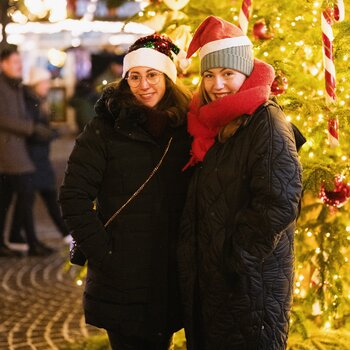


On Thursday, the biggest hype is already over. Many researchers have already left. A much smaller group still meets for the workshops, which to be honest are not much different from the rest of the conference. Here, too, researchers present their work to the plenary session, concentrating on a specific topic. There is also a small poster session in the room, which invites people to exchange ideas. I'm delighted to be there today because I heard a rumor that Sahar Abdelnabi, one of our PhD students, is to receive a Best Paper Award. Sahar is a researcher in the team of CISPA-Faculty Mario Fritz. Mario heads the ELSA network of excellence, for whose communication I am jointly responsible. She is presenting a highly regarded paper here this afternoon: Together with the Saarbrücken-based company Sequire Technology, she and other CISPA researchers uncovered glaring security gaps in the first freely accessible version of ChatGPT shortly after it was published. The paper actually received an award here, which makes me very happy and visibly touches Sahar.
And here we are again: at the end of a week full of encounters. Full of excitement, nervousness and concentrated information. It seems to me that being a researcher is both incredibly exciting and exhausting at the same time. Deadlines, writing publications, revising, failing, experiencing breakthroughs, talking, talking, talking. When we submit the last post at dinner that evening, I'm glad that it's done. At the same time, I'm already really looking forward to the next conference and the knowledge and memories I can take away from there.
